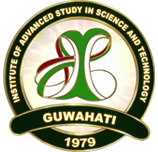
A Brief Profile of the Director
Prof. Ashis K. Mukherjee did B. Sc. (Chemistry Hons) in 1990 from Banaras Hindu University, M. Sc. in Biochemistry from Banaras Hindu University in 1992, a Ph.D. in 1998 on Indian cobra and Russell’s viper venoms from the Dept. of Biochemistry, Burdwan Medical College, Burdwan University, and D. Sc. in Biotechnology from Calcutta University in 2017. He secured first class first rank in order of merit in the B. Sc. (Hons) and M. Sc (Biochemistry) examinations. Prof. Mukherjee joined Tezpur University in March 1997. He is the founder and faculty member of the Department of Molecular Biology and Biotechnology of this University located in a remote corner of the country. He became Professor in the same Department in the year 2009.
From the inception of his joining at Tezpur University, he has been instrumental in the development of biotechnology teaching and research in NE India. He served as the Head and Coordinator of the DBT-recognized Department of Molecular Biology and Biotechnology (2008-2011), Head ONGC-Center for Petroleum Biotechnology, Tezpur University (2008-2011 and 2014 to 2017), and Dean, Research and Development, Tezpur University (2016-2019). Prof. Mukherjee was the coordinator of UGC-SAP (DRS-I) of the Dept. of MBBT, Tezpur University, and has been associated with many other academic and administrative responsibilities, for example, member of the Academic Council, Research Council, Senate, etc.
Prof. Mukherjee, in addition to his responsibility of teaching and research, has also been entrusted with the additional responsibility of Head and Coordinator of DBT Nodal Cell for Medical Colleges and Biomedical Research Institutes of NE India (an establishment of DBT, Govt. of India) at Tezpur University, since September 2009 to 2018. One of the mandates of this center was to assist the respective biomedical research institutes/project investigators in the N-E region under the DBT Nodal cell for effective project implementation. Noteworthy to mention that through the DBT Nodal Cell, Prof. Mukherjee has made an incredible contribution to the up-gradation and development of medical and biomedical research in Medical colleges located in NE India.
Prof. Mukherjee has made an outstanding contribution in a neglected but exceedingly specialized area of research by biochemical and proteomic analyses, pharmacological characterization, and elucidation of the mechanism of action of several novels or previously uncharacterized protein/peptide toxins from the venom of ‘Big Four’ snakes and Indian red scorpion. The observed diversity of pharmacological activities of these structurally conservative venom components and the identification of the neuritogenesis potential of alpha- elapitoxin from Indian cobra venom are some of his imperative contributions. Prof. Mukherjee became the pioneer in showing the geographical variation in venom composition of the ‘Big Four’ snakes and he has identified venom’s weak /partial immunogenic toxins, which has offered tremendous scope for improving the quality and efficacy of commercial antivenom. He has demonstrated the usefulness of several laboratory techniques for assessing the quality of commercial antivenom for improving snake and scorpion bite treatment. He has also established the therapeutic application of relatively non-toxic anticoagulant proteins and enzymes, novel custom peptides, and natural inhibitors from snake venom and medicinal plants as model drug candidates to treat several metabolic disorders, which would be a significant driving force for the development of bio-industrial sectors in India.
He has received several awards and medals for his academic and research achievements such as the Yong Scientist award from the Indian Science Congress Association in 1999, the Zoological Society of India in 1995, and the Physiological Society of India in 1998. He is the recipient of the Best Researcher Award from Tezpur University in 2008, the Units of Excellence Award in NER by DBT in 2014, the National Bioscience Award from DBT in 2014, the Sreenivasaya Memorial Award by the Society of Biological Chemists (India) in 2014, the Visitor’s Award for Research in Basic and Applied Sciences from honorable President of India in 2018, Tata Innovation Fellowship by DBT in 2018, INSA Teachers Award in 2018, ICMR Award in 2018, and Prof. Sohail Ahmad Award by Indian Academy of Biomedical Sciences in 2018. He is a fellow of the Royal Society of Biology, UK, West Bengal Academy of Science and Technology, Kolkata, India, and Indian Academy of Science, Bangalore. Prof. Mukherjee has guided several students for Ph.D. and M. Sc. dissertations, and has published more than 150 research papers in peer-reviewed International and National journals, book chapters, and review articles. He is also a task force member of WHO, DBT, and ICMR on snakebite prevention and therapy.







